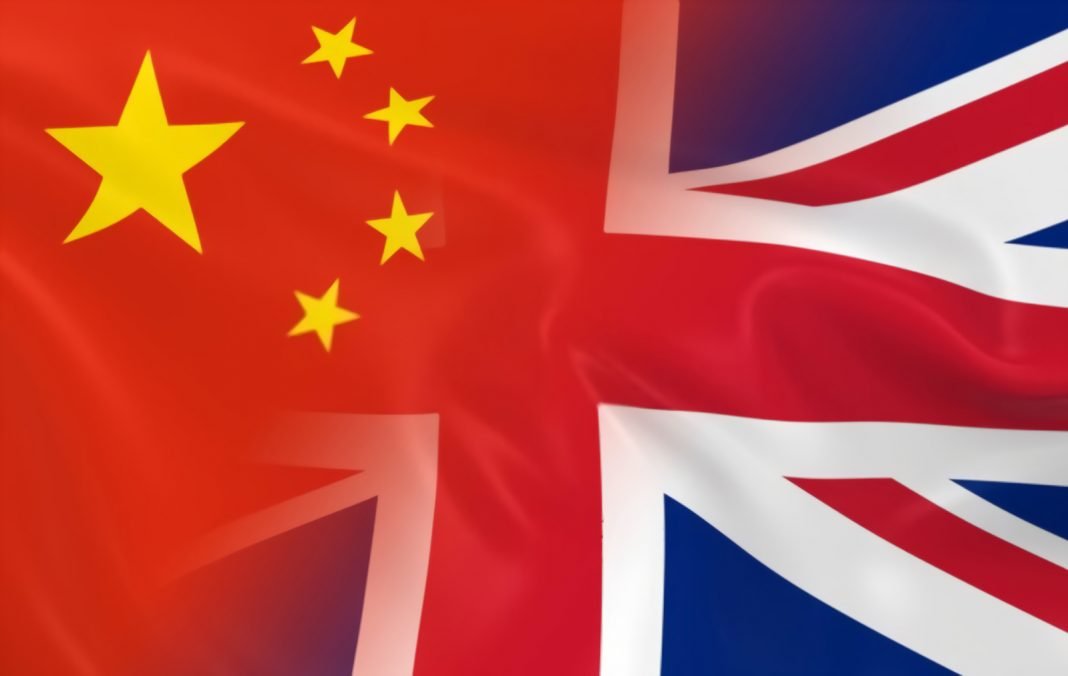China and Britain benefit from bilateral trade and investment. However, China is also the biggest threat to Britain’s economic security. Britain seems to want to be China’s largest trading partner in Europe in the post-Brexit period. But the US is against UK-China relations and discourages Britain from trading with China. Thus, the UK is faced with the dilemma of bowing to the US or having relations with China.
Britain-China Interaction
According to the Financial Times, in the autumn of 2015, George Osborne went to Beijing with a mission. At the time, Mr Osborne used a term that emphasised the value of UK-China relations. Looking to the future, the then chancellor referred to the decade of UK-China relations as the “Golden decade”. Six months earlier, despite strong US misgivings, the UK had become the first G7 member to sign up for China’s new competition for the World Bank, the Asian Infrastructure Investment Bank (AIIB). Mr Osborne declared, “No economy in the West is as open to Chinese investment as the UK.”
China: A Threat to the UK
According to Quartz, when the UK officially left the European Union, it put many people out of jobs—including Nigel Farage, the bombastic former leader of the Brexit Party. An open question was: what would Farage do next? In a 2021 New Year’s video message that has since then been watched more than 1.3 million times, he gave a surprising answer.
Farage said, “I’ll tell you what the next big challenge is.” He added, “In some ways it’s an even bigger challenge than the European Union was. It is a bigger threat to our independence, way of life, and liberty. And it is China.” China does not seem to be the country that the UK can trust.
Public Opinion of China
According to Quartz, public opinion of China in the West has been hardening for years. Covid-19 made people care about China in ways they had not before. These days, the UK distrusts China. A recent poll showed that 60% of Britons see the Chinese government as a “Force for bad in the world.” They say their opinion of it has worsened since the start of the pandemic. Only 3% view it as a force for good.
U-Turn in UK-China Relations
According to the Diplomat, in just a few months, the United Kingdom’s overall policy towards China has changed dramatically. Until recently, Downing Street was famously defining itself as “China’s best partner in the West.” The UK was committed to intensifying its proclaimed “Golden era” of relations with Beijing. Britain was the first G7 country to join the Chinese-founded Asian Infrastructure Investment Bank. It described itself as the most open Western economy to Chinese investment and promoted an economic approach that largely favoured Chinese interests within the European Union.
When taking over as prime minister in July 2019, Boris Johnson insisted that his government supported China. Since then, however, the UK has become one of China’s most vocal critics. The UK angered Beijing by removing Huawei from its 5G network. It decided to provide millions of Hong Kongers a pathway to British citizenship. Moreover, it planned to reduce or stop Chinese investments.
How can we explain this about-turn? What have been its main drivers? Much attention has been focused on US influence over UK’s China policy. While pressures by the US play an important role, domestic factors are vital to understanding this radical U-turn.
According to the Financial Times, little remains of Mr Osborne’s glittering vision five years later. As stated above, Mr Osborne declared, “No economy in the west is as open to Chinese investment as the UK.” Britain is in a dire economic situation and is suffering from the political shock of Brexit. The country needs global trade and investment. However, Boris Johnson’s government is taking a much harder look at China.
Britain, China and the Indo-Pacific
UK-China relations have been discussed in the Integrated Review of Security, Defence, Development and Foreign Policy. The prime minister presented the review to parliament by Command of the Queen in March 2021. Regarding the Indo-Pacific region, the study says the UK will pursue deeper engagement here. Britain will support shared prosperity and regional stability, with stronger diplomatic and trading relations. This approach recognises the importance of powers such as China, India and Japan. The policy also extends to other countries, including South Korea, Vietnam, Indonesia, Malaysia, Thailand, Singapore and the Philippines.
The review also explains the issue of UK-China relations. According to the study, Britain will try harder to adapt to China’s growing impact on British lives. The UK will invest in enhanced Chinese potentials, through which it will develop a better understanding of China and its people. Britain will continue to pursue a favourable trade and investment relationship with China. It will also cooperate with China in tackling challenges such as climate change. In the meantime, the UK will improve its ability to respond to China’s systemic challenge to the country. The country will respond to challenges threatening its security, prosperity and values – and those of its allies and partners.
Conclusion
The UK seems to be interested in relations with China. The government is trying to protect its interests and the interests of its partners, including the US. The UK seems to be under pressure to follow the path determined by the US, but it is at a crossroads. One option for the UK is to join China’s rivals in Asia-Pacific and satisfy the US. Another option is to trust and join China as a superpower. Brexit has has made it even more difficult for the British government to make a wise decision about confrontation or cooperation with China.

